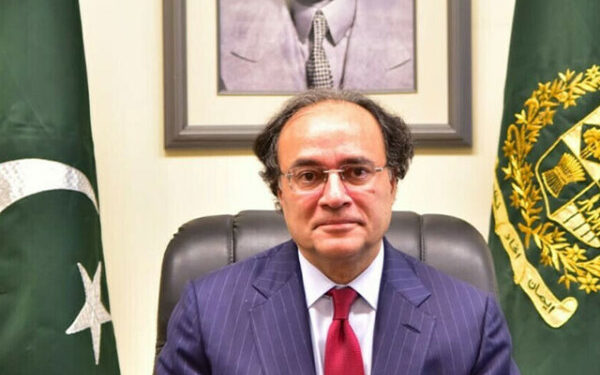Finance Minister Muhammad Aurangzeb has dismissed the possibility of accelerating economic growth and has preferred stability over the debt-driven growth model, while State Bank Governor Jamil Ahmed has urged the government to accelerate key structural reforms to avoid any pressure on foreign exchange reserves and spend more on quality health and education.
During a meeting of the Senate Standing Committee on Finance, the Finance Minister stressed his commitment to solid and sustainable economic growth regardless of the rate and said that it should be clear to everyone that no matter how much pressure is put on me, I will not accelerate economic growth. Muhammad Aurangzeb’s statement came a few days after meetings with the business community in Karachi and Lahore and the launch of the five-year economic plan titled Udan Pakistan. Sources said that the business community has put pressure on the country’s key decision-makers to let the economy move forward.
The Finance Minister said that we will not do anything that will create a problem in the balance of payments and the government is committed to the IMF program. Muhammad Aurangzeb made it clear that sustainable growth can only be achieved by increasing exports.
In a meeting of the Senate Standing Committee on Finance, the Governor State Bank said that economic growth in the current fiscal year will remain in the range of 2.5 percent to 3.5 percent, which is lower than the official target. He said that economic activity remained sluggish in the first quarter but recently it has accelerated.
The Governor of the Central Bank urged the federal government to take steps to accelerate reforms. Health and education are also at the lowest level, the Governor said that the pace of structural reforms must be accelerated. Otherwise, there will be pressure on foreign exchange reserves, which will remain at one of the lowest levels of import cover equivalent to 2.2 months.
The Governor also said that the Central Bank has also achieved the medium-term inflation target of 5 percent to 7 percent, but there are risks in this. He said that inflation is expected to rise again from April to September next year. There will be some fluctuations in prices due to adjustment in gas prices, while the average inflation during the current fiscal year will remain in single digits and the inflation rate will stabilize again after the first quarter of the next fiscal year.
The Finance Minister expressed concern over the increase in chicken prices and said that the Price Monitoring Committees should take notice of it. The Finance Minister said that single-digit interest rates make it more feasible to take loans for purchasing houses and cars. The Finance Minister said that the reduction in interest rates has halved the cost of borrowing for companies, but the industry is still going through a difficult situation.
The Governor of the State Bank said that the drastic cuts in interest rates in the current fiscal year will save the government Rs 1.5 trillion in debt. Jamil Ahmed said that the current account is expected to be in surplus again in December, due to remittances and high exports.

























